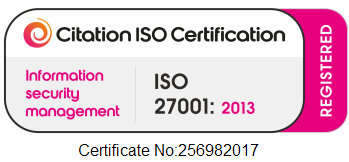Is Cancel Culture Creeping into Recruitment? Generational Cancelling
Cancel culture has become one of the most hotly debated topics in modern society. It’s a phenomenon where individuals, often public figures, are ostracised or “cancelled” for their actions, opinions, or past behaviour, especially when those behaviour clash with current societal norms. But what happens when this trend seeps into the professional world? More specifically, how does it impact the recruitment process?
As employers increasingly turn to social media and online backgrounds to assess potential candidates, the line between personal and professional life blurs. In this context, the concept of “generational cancelling” emerges—where different generational attitudes towards cancel culture influence hiring decisions. Understanding this dynamic is crucial for creating fair, inclusive, and forward-thinking workplaces.
Understanding Cancel Culture
Cancel culture’s impact is double-edged. While it can lead to necessary societal changes, it can also result in disproportionate consequences, such as the destruction of careers or reputations over past mistakes. Some argue that cancel culture leaves little room for personal growth or redemption, creating a culture of fear and silence rather than one of learning and progress.
What Is Generational Cancelling?
Generational cancelling refers to the idea that different generations view cancel culture—and the behaviours that warrant it—through different lenses. This generational divide is becoming increasingly evident in workplaces, where Baby Boomers, Gen Xers, Millennials, and Gen Zers often hold starkly different beliefs about what is acceptable and what should be condemned.
For instance, older generations might view certain behaviours as simply “a product of their time,” while younger generations might see them as inexcusable. These differences can lead to conflicts in hiring and workplace dynamics, where what one generation considers a minor indiscretion, another might view as grounds for disqualification.
The Impact of Cancel Culture on Recruitment
The influence of cancel culture on recruitment is significant and growing. Companies are more frequently conducting thorough social media background checks on candidates, looking for any red flags that could tarnish the company’s reputation if the candidate is hired. This means that a single controversial tweet or an old Facebook post could potentially derail a person’s career before it even starts.
Public opinion also plays a role in this. As companies strive to maintain their brand image, they may shy away from hiring individuals with a controversial online presence, even if those controversies are minor or misunderstood. This leads to a risk-averse hiring culture where “playing it safe” can mean overlooking qualified candidates who have made past mistakes but have since learned and grown.
Generational Cancelling in Recruitment
Generational cancelling occurs when hiring decisions are influenced by the generational biases of those involved in the recruitment process. For example, an older hiring manager might overlook a candidate’s controversial social media activity as a youthful indiscretion, while a younger recruiter might see it as a dealbreaker.
This can create inconsistencies in hiring practices and lead to a homogeneous workplace culture, where certain generational perspectives dominate. It can also stifle diversity, as candidates who don’t align with the prevailing generational norms may be unfairly excluded from consideration.
The Risks of Cancel Culture in Recruitment
While cancel culture aims to promote accountability, its presence in recruitment comes with risks. Legal and ethical concerns are at the forefront—employers need to navigate the fine line between protecting their brand and discriminating against candidates based on their online activities or past mistakes.
Moreover, an overly rigid approach to cancel culture in recruitment can lead to a loss of top talent. Candidates may be discouraged from applying to companies with a reputation for harshly judging past behaviours, even if those candidates have valuable skills and experience. This can ultimately harm the company’s competitiveness and innovation.
How to Address Cancel Culture in Recruitment
To mitigate the negative impact of cancel culture on recruitment, companies should strive to develop fair and unbiased hiring practices. This includes being transparent about how social media and online history are factored into hiring decisions and ensuring that these factors are weighed appropriately against a candidate’s qualifications and potential.
Communication is key. Companies should clearly communicate their values and expectations to candidates, allowing them to understand how their past actions might be viewed. At the same time, employers should encourage a culture of forgiveness and growth, recognising that people can learn from their mistakes and evolve.
The Future of Recruitment in a Cancel Culture Era
Looking ahead, cancel culture’s influence on recruitment is likely to evolve. As newer generations enter the workforce and bring their values with them, companies will need to adapt their hiring practices to reflect these changes. This might involve rethinking how social media is used in the recruitment process or developing new criteria for evaluating candidates.
One thing is clear: companies that can navigate the complexities of cancel culture while maintaining a fair and inclusive hiring process will be better positioned to attract and retain top talent. By staying ahead of cultural shifts and fostering an environment of growth and forgiveness, these companies will not only survive but thrive in the era of cancel culture.




Comments are closed